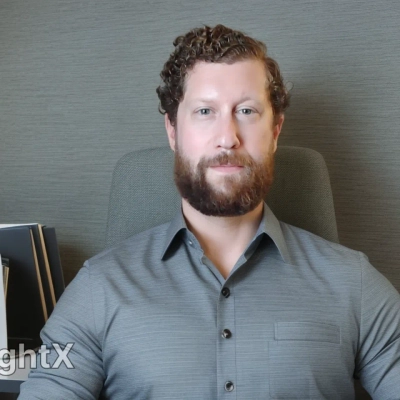7 Common Misconceptions About Psychology Debunked
Psychology is a field often misunderstood by the general public. This article debunks common misconceptions about psychology, drawing on insights from experts in the field. By addressing these myths, readers will gain a clearer understanding of what psychology truly entails and its practical applications in everyday life.
- Psychology Requires Patience Not Quick Fixes
- Self Esteem Issues Affect Everyone
- Psychology Goes Beyond Childhood Analysis
- Psychologists Do Not Constantly Analyze Others
- Psychology Is Science Not Common Sense
- Therapists Guide Exploration Not Give Advice
- Therapy Involves Structured Methods Not Just Talking
Psychology Requires Patience Not Quick Fixes
Hi there!
I'm Jeanette Brown, a holistic wellness coach who helps midlife women with life transitions. I've spent decades applying psychological principles to real people's struggles in classrooms, businesses, and families.
One of the most common misconceptions I encounter is the belief that psychology offers a "quick fix" for human behavior. People think that reading one book, attending a weekend seminar, or memorizing a handful of motivational quotes will change everything. In reality, psychology, like teaching or raising children, is a steady practice that requires great patience.
I'll often share this story: when I was a young teacher, a student's parent asked if I could "make her son confident" before the school play. She wanted a one-day transformation. Instead, we worked with the boy for weeks on small exercises: standing a little taller, practicing lines in front of one friend, then two, then the whole class. By performance night, his hands still shook, but he stood proudly on stage. That's what I call practical psychology — gradual exposure, encouragement, and reinforcement.
I remind people that psychology doesn't hand us instant answers — it gives us tools. The real change comes when we apply those tools consistently, over time, and in the messy reality of our daily lives. That's where growth actually takes root.
Thank you for considering my insights! Hope it's helpful.
Cheers,
Jeanette Brown
Entrepreneur, Founder of JeanetteBrown.net

Self Esteem Issues Affect Everyone
Upon realizing the role self-esteem plays in their wellness, one might ask, "Am I a narcissist?"
The answer is both yes and no. You are typically not a narcissist as defined by the DSM, but according to the Psychodynamic Diagnostic Manual (PDM) quoting Heinz Kohut, we all have wounds to our self-esteem. Consequently, this is part of everyone's mental health picture and therapy process. Ironically, gaining insight into self-esteem issues is, in itself, a wound to our esteem - a common hurdle in mental health: we avoid the pain of recognizing (repress) the underlying problem, resulting in a stalemate until we are ready to gain insight. I refer to this insight as the "sword and the salve" - it is almost ubiquitously essential for wellness, but also causes pain. It's like the re-setting of a broken bone.
Let's imagine all of the hurt self-esteem exists in an internalized embodiment of our childhood. How, in the process of therapy, can we come to accept and nurture it? Can we call upon a healthy, core, adult part of ourselves? Strengthen that part? Build on its attributes?
Self-esteem issues typically have a bipolarity: the DSM narcissist portrays a "specialness" as their surface and represses the depressed ego-state, while the depleted presentation has the depressed ego-state at the surface and the sense of specialness repressed and relegated to daydreams/fantasy. The person with social anxiety feels somehow "less than" on the surface, but often has a fantasy of being overtly accepted without effort (and risk of rejection) on their part - that someone will go out of their way to bring them comfortably and with kid gloves into the social circle.
Other misconceptions:
- Bipolar disorder equates to impulsivity. Myth - it is a circadian rhythm disorder. The core symptom is reduced need for sleep while also experiencing secondary symptoms, one of which may be impulsivity.
- Therapy addresses symptoms: Myth. While managed care organizations/models apply a heavy-handed guide to focus on symptom reduction, this often backfires because the person is no longer the focus of therapy. Focusing on the person, personal growth, and increasing agency/free will almost certainly leads to symptom reduction, but it is short-sighted to focus on the symptoms at the cost of focusing on the person.

Psychology Goes Beyond Childhood Analysis
One common misconception about psychology that I encounter as a psychotherapist at a private practice in New York City is that psychology is all about analyzing our childhood and that everything goes back to this. While certain psychodynamic and psychoanalytic approaches do emphasize understanding our early experiences, not everything in the broad field of psychology is about this. There are many schools of thought and therapeutic approaches that focus more on, or equally as much on, the present or future.

Psychologists Do Not Constantly Analyze Others
As a psychologist for almost fifteen years, I have encountered many misconceptions about our profession! Interestingly, the most common is the idea that I am always analyzing the people around me in a negative way. I find this intriguing because this is usually not a question people ask other professionals, but is often asked of psychologists. While I think it is a result of people finding the idea of being "analyzed" an undesirable situation, it is interesting that our field is associated with providing our services for free even in casual settings! I say that is interesting because so often our field struggles to be compensated appropriately and to be perceived positively regarding compensation for services. So, it is fascinating to me that this comes up as often as it does when I know it is the product of a wider misperception and problem in our industry.

Psychology Is Science Not Common Sense
A pervasive misunderstanding I encounter quite frequently is the assumption that psychology boils down to "common sense." Many believe it's simply about offering advice or stating the obvious. As gender and women's studies scholars, we perceive a glaring gap in the definition of psychology. We see it as a discipline concerned with the study of the human mind and behavior. However, to other fields of study and especially to the general public, psychology is often viewed as a pseudoscience. The reality is that psychology is a science and is as rigorous as any other branch of science. It is based on systematic research, data, and evidence on the various nuances of human thinking, emotions, and behavior.
To address such ignorance, I like to point out that psychology enables us to differentiate between things that are truly accurate and things that we merely think are true. For instance, the widespread belief that venting one's anger is beneficial is not true. Studies conducted over decades have shown that it actually increases aggression. Providing such examples makes me realize that psychology is not a restatement of the obvious; it is a body of knowledge that provides practical and evidence-based insight into what lies beyond common perception.

Therapists Guide Exploration Not Give Advice
A common misconception in the field of psychology is that clinical psychologists (and other therapists) are supposed to give advice to their clients. Our job isn't to tell clients what to do; rather, it is to help our clients explore their thoughts and feelings about their various options when they are faced with a decision.

Therapy Involves Structured Methods Not Just Talking
As a business owner in the addiction treatment and mental health field, one common misconception I encounter about psychology is the idea that therapy is just "talking about your problems." I hear this from patients, families, and even professionals outside of the field. They assume psychology is simply venting to someone who nods and listens. That couldn't be further from the truth.
In reality, psychology is rooted in science and evidence-based practices. At Ridgeline Recovery, we use structured approaches like cognitive-behavioral therapy (CBT), motivational interviewing, and trauma-informed care. These aren't casual conversations—they're proven methods designed to change thought patterns, build coping strategies, and address the underlying issues driving addiction and mental health struggles.
When I address this misconception, I usually explain it in practical terms. If someone breaks their leg, they don't just "talk about it"—they see a doctor, get an X-ray, and follow a treatment plan. Mental health is no different. Psychology gives us the tools to diagnose, treat, and measure progress, not just listen. That shift in perspective often helps people see therapy as active, intentional work rather than passive conversation.
I've also found that transparency helps break this myth. When clients and families see that therapy involves measurable goals, exercises, and accountability, they realize it's not about endless talking—it's about real change. And once they experience progress, their view of psychology transforms completely.
For me, the bottom line is this: psychology is not "just talking." It's science applied with compassion. And when people understand that, they're much more open to engaging in the process that can truly change their lives.


